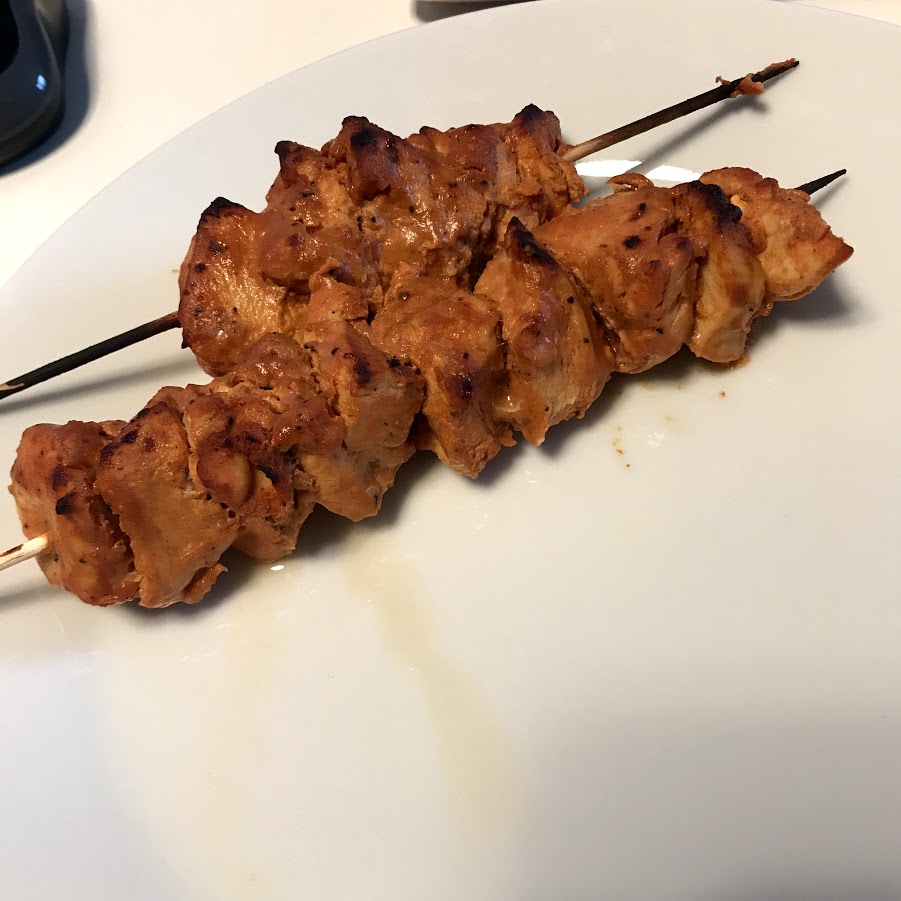It is becoming extremely exhausting to write every day. These days I am juggling between many things and it is becoming harder and harder to have few free minutes for writing that makes me satisfied about myself. I think my main issue is lack of time organization. Many of my habits are not tied to fixed times, which creates this unpredictability. This too shall pass, until then I will keep it up.
When Violence Is The Answer
I finished listening to “When violence is the answer”, in which the author teaches you how to prepare for the unexpected violence any of us can get exposed to. His argument about the randomness of violence and the necessity to prepare for it is compelling to me. He distinguishes social aggression from violence, explains how to spot each, and how to react to each. I personally started making changes to some aspects of my life and I think everyone, especially females should read this book.
On the other side I expected more details. The ideas in the book were repeated over and over without adding more dimensions or details to them. I also felt there could be more structure and steps instead of continuous anecdotes. The anecdotes were good to explain the ideas, but they didn’t cover the full picture.
Summary
- Anyone can get exposed to violence. And it is totally random.
- Aggression is different than violence. Aggression has room for backing and deescalation, violence once happening is unavoidable.
- In case of violence, one has to inflict an incapacitating injury on their perpetrator. Running is not a good strategy as it has higher chance of failure.
- Inflicting injuries is possible on certain parts of the body. That’s why drug cartels make their members read anatomy books to understand where to hit.
- Training highly increases chances of survival.
Product Monday: Post-it Notes
Yesterday I learned that post-it notes glue was a patented technology. This gave them leverage to spread in the market before anyone could copy them. Those stories always fascinate me, as they help one understand what made a product succeed.
Random Thoughts
I am recently questioning my Product Monday series. I don’t feel natural as I am doing it. Part of it is because I am a generalist and it feels like I am trying to become some sort of authority on product management which I am not. I sometimes thought about it as some sort of hedge against making the blog too personal and to express my product experience to those who might learn from it, or want to know my thoughts for job opportunities. I will keep doing it for some time but I don’t know until when.
Today I read this How Not to Be Stupid. The description in the post for stupidity perfectly matches some people I know.
“I defined stupidity as overlooking or dismissing conspicuously crucial information.”
We all do it from time to time, but I wonder what makes someone who has all the tools of knowledge and ability to broaden their horizon insists on ignoring crucial information while forming their point of view. I asked my “Ward of the Sane” which is my group of Egyptian intellectuals that I normally talk to. Back in the time they said you can do nothing about it you just need to run away from those people. I am still not satisfied by these answers.
I cooked this Shish Tawook today. It tasted good. A bit sour as I think I put too much mustard. But overall it was satisfying. I still suck at rice though. I don’t like rice in general but I don’t know why I insist on mastering how to make it.


As usual, a random thoughts post can’t end without talking about books. For some reason recently I went on books shopping frenzy and bought more than I can chew (Kindle: 7 Powers, The Headspace Guide to Meditation, and The Order of Time. Audio: Why violence is the answer, Blood sweat and pixels, and a friend gifted me “The Dream Machine”).
I am currently listening to “When violence is the answer”, in which the author teaches you how to prepare for the unexpected violence any of us can get exposed to. His argument about the randomness of violence and the necessity to prepare for it is compelling to me. He distinguishes social aggression from violence, explains how to spot each, and how to react to each. I personally started making changes to some aspects of my life and I think everyone, especially females should read this book.
I finished “A man for all markets” and started reading “7 Powers” on my Kindle. The former was entertaining but got boring by the third part. It got too technical about investing tactics and that’s when I lost track. Although there is a chapter at the end about saving and personal finance that I want to read again to compare to my strategy. The latter is in my opinion stating the obvious about what strategies businesses adopt to give them “Power” in their domain. Economies of scale, network effect, competitive positioning…etc. I also feel the author is trying to over-complicate things and give terms to things that already have a term. But apart from this, it is a good refresher on these topics and I am curious to see what he talks about in the second part after he explain the 7 Powers.
Speaking of the 7 Powers, one thing mentioned in the book in the economy of scale section is that it has to be coupled with operational excellence. I am recently thinking about this as it is one of the themes at work, and one of the aspects Amazon is famous for. I wonder how startups should balance between moving fast and breaking things vs operational excellence. How much is too much? Asking for a friend.
RTFM
When I was a child I enjoyed reading manuals of new devices. I always discovered hidden options no one knew about and it made people perceive me as smarter.
One of the manuals I read that significantly reduced my problems was the Casio scientific calculator. I realized it can multiply matrices and solve a type of equations we had to solve by hand. Our teachers were teaching us how to use the calculator to calculate the hand written math, I was using it to solve the whole equation. Almost no one knew this, and the people I shared with were either not believing me or too lazy to understand the complex user experience of the calculator.
The software industry made manuals a thing of the past. I remember reading in Steve Jobs biography that he refused to have a manual for the original Apple 1. He associated having a manual with bad user experience. I think he was right.
Sadly the intuitive user experience we are used to in the software industry didn’t penetrate home appliances. I recently used Google translate to read the manual of my oven. It led to significantly better cooking results. Today I gave a crash course to a friend in oven options and how each affect the food. It was a good reminder to RTFM (Read the Fucking Manual).
Can you use the accessible bathroom?
Yes. I used to think no but changed my mind. There are two reasons for changing my mind
1) It is an unused resource most of the time. Although it is rare and the only option available to someone who needs it, I don’t see a big problem if someone used it when it is not needed.
2) Some people have hidden disabilities and need those bathrooms. There is no way for me to tell if someone really needs it or not.

Rereading
One area I am struggling with is rereading books I already read. I want to do this because I know rereading will reveal new angles of the book that I missed. Some books I read at less maturity level and didn’t fully understand them. Other books if I reread I might change my opinion about them.
The following paragraph explains my insecurity in rereading books
“The writer Umberto Eco belongs to that small class of scholars who are encyclopedic, insightful, and nondull. He is the owner of a large personal library (containing thirty thousand books), and separates visitors into two categories: those who react with “Wow! Signore professore dottore Eco, what a library you have! How many of these books have you read?” and the others—a very small minority—who get the point that a private library is not an ego-boosting appendage but a research tool. Read books are far less valuable than unread ones. The library should contain as much of what you do not know as your financial means, mortgage rates, and the currently tight real-estate market allow you to put there. You will accumulate more knowledge and more books as you grow older, and the growing number of unread books on the shelves will look at you menacingly. Indeed, the more you know, the larger the rows of unread books.”
Nassim Talib, The Black Swan
Museum Frustration
I keep saying I don’t like museums, then I discovered that I visited more museums than most of my friends. Every time I visit a new museum I am there with the hope to be impressed. I am always looking for this surprise that never happen.
The only experience that surprised me was the mummies room in the Egyptian Museum in Cairo. I have some photos but be careful they are graphic (dead people from 3000-5000 years ago). 1, 2, 3.
I think museum experiences should be like IKEA. There should be a determined path and the audio guide should give you enough context to understand the pieces and enjoy the experience. Whenever I visit a museum with someone experienced on the topic, I appreciate more what’s inside as I get more context.
We should also get rid of standalone devices for audio guides. Everyone has a smart phone now. Actually since I started writing this blog I thought what’s preventing having innovation in this space? I think the biggest barrier is lack of incentive. Most museums are publicly owned and in some state of monopoly which removes the incentive to do better. No museum goes bankrupt.
That’s where tech should come in. I think there is an enormous opportunity for a startup to get into this space and provide experience guides for museums across the globe. I already heard of some efforts, but I think the traditional thinking of partnering with museums is a waste of time. If I am doing this, I will start by fully mapping one museum, create impressive experience for that museum, and release this app on the store.
There can be some technological barriers like lack of WiFi in most museums. This can be overcome by having those guides downloadable offline.
There will be the question of how to identify the items, there are multiple solutions for that: Museums have a numbering system for each piece for visitors to use on the stupid audio guide devices, you can use the same numbers on the application. A second solution is now possible thanks to advances in machine learning, there can be an offline recognition model on the app that recognizes a picture of the item. It won’t be of high error rate because of the defined search space. A third solution can be by scanning the text description of the piece and doing offline OCR.
It is not a tech problem but rather a content problem. Content is still the king. It is a case where art and tech need to get married, and have a beautiful baby.
Online Evolutionary Biology
I wonder if Facebook use their data to study human behavior the way evolutionary biologists study humans. I have once said Tinder is evolutionary biology wrapped in an algorithm. I think with Facebook that’s a bigger case.
I won’t be surprised if they have data about behaviors of different segments such as gender, race, country, and others behaviors that they are not able to share due to the controversy it will draw or to not lose some competitive advantage. Facebook is the representation of human connections and this is what they are engineering, and able to reverse engineer.
Happy New Year
As I think back on the ending year, my biggest highlight is this blog. This post is #129. I published on 129 days. It wasn’t easy, but it was rewarding. I hope to achieve 365 next year.
Multiple people asked me why write daily? What is the benefit?
It frees my mind. It forces me to articulate my ideas and many times I discover what I am thinking is not the same once I start writing it. It thickens my skin because I expose my ideas to the world to be criticized. It improves my writing at work and other places. It has asymmetric reward, if I write badly, nobody cares, if I write well, it just scales. And, it connects me to people. This year I got multiple messages from people I don’t know. Some complimented my writing, others asked questions, and some gave interesting comments.
“Hi Mostafa, I just wanted to tell you that I enjoy your blog. The concepts & ideas you talk about make me think deeply about certain things I take for granted & also exposed new dimensions of looking at certain topics. Good work!”
Happy 2019. I wish you a great year ahead.